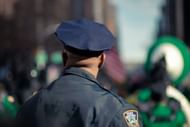The Perfect Neighbor asks a direct question about accountability in the killing of Ajike “AJ” Owens. The documentary follows the dispute through extensive police body-camera recordings and notes the 2024 courtroom verdict.
The film centers on a fatal shot fired through a closed, locked front door in Ocala, Florida, on June 2, 2023. Susan Lorincz pulled the trigger. In 2024, a jury found her guilty of manslaughter with a firearm, and a judge sentenced her to 25 years in prison. The documentary pieces together two years of police interactions and community complaints tied to the dispute.
The Perfect Neighbor: case background
Before the shooting, tensions reportedly built over children playing in a grassy area beside Lorincz’s home. Multiple neighbors said arguments kept flaring. Officers were called many times. The recordings shown in the film capture those routine responses, long before the crime scene tape went up.

The documentary presents a neighborhood that often felt close. Families gathered outside. Kids moved between lawns. The conflict sat at the edge of that daily life. Lorincz, who described herself to officers as “the perfect neighbor,” called police repeatedly about noise and alleged trespass.
Some residents told deputies that she yelled at children and recorded them. Those claims appear in body-camera interviews and help set the stage for the final encounter. According to TIME, the footage shows officers growing skeptical of Lorincz’s complaints over time.
Also read: 5 key details about Ajike Owens' case as Netflix drops The Perfect Neighbor
The night of the shooting
On the night of June 2, 2023, calls to 911 started again. Lorincz reported that kids were on or near her property. A dispatcher told her units were on the way. Soon after, Owens came to Lorincz’s door.
What happened next is depicted through audio recordings, neighbor statements, and police camera footage after the fact. Lorincz said she feared for her life, then fired through the door. Owens was struck in the chest around 9:00 pm and later died at a hospital.

The Washington Post reported that detectives questioned why she used a gun minutes after a dispatcher said officers were coming, adding that her decision did not appear reasonable based on the evidence gathered at the scene.
The film does not show the bullet being fired. It shows the response that followed. Sirens, shouting, and attempts to save a life shape the timeline the filmmakers assemble.
The Perfect Neighbor: investigation, arrest, and charges
Deputies waited several days before arresting, reviewing Florida’s self-defense statutes, and gathering statements. That delay drew public anger.
Once interviews and forensic checks were complete, Lorincz was arrested and charged with manslaughter with a firearm, culpable negligence, battery, and two counts of assault. The body camera archive helps explain why the inquiry took that path. It tracks the long-running dispute, the calls to 911, and the final chain of events.
Stand your ground law forms part of the debate shown in the documentary. The recordings capture how claims of fear were raised, and how investigators evaluated those claims against physical evidence and neighbor accounts. According to TIME, the judge later said Lorincz acted more from anger than fear.
Also read: The Perfect Neighbor case - A detailed case overview
